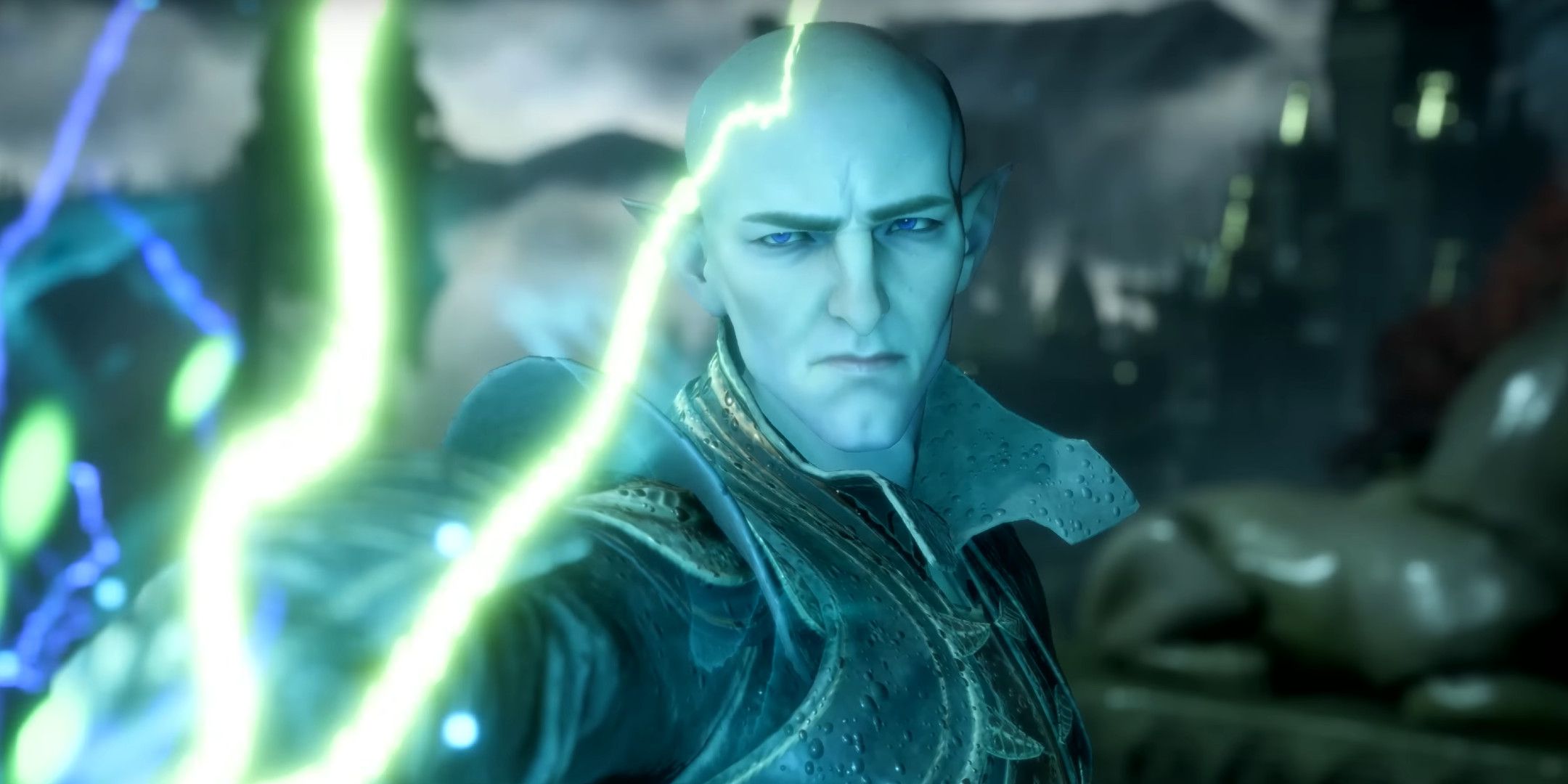
The Dragon Age franchise, a cornerstone of BioWare’s legacy, has long been celebrated for its rich storytelling and immersive fantasy worlds, but a shocking revelation has cast a shadow over its history. Members of the Dragon Age: Inquisition development team have come forward with claims of feeling “betrayed” and abandoned by BioWare and its parent company, Electronic Arts (EA), after the game’s monumental success in 2014. Despite Inquisition’s critical acclaim and commercial triumph, the team reportedly received little support for their efforts, leaving them grappling with burnout, disillusionment, and a sense of being left behind. This bombshell, surfacing amid the recent release of Dragon Age: The Veilguard, has sparked outrage among fans and raised questions about the inner workings of one of gaming’s most beloved studios. Here’s a deep dive into the Dragon Age team’s post-Inquisition struggles, why their story resonates so deeply, and what it means for the franchise’s future.
The Rise and Fall of Inquisition’s Triumph
Dragon Age: Inquisition, released in November 2014, was a defining moment for BioWare. Following the divisive Dragon Age II (2011), which faced criticism for its rushed development and repetitive environments, Inquisition was a triumphant return to form. The game introduced an expansive open world, a compelling cast of characters, and a narrative centered on the Inquisitor’s quest to save Thedas from a demonic invasion. Powered by EA’s Frostbite engine, Inquisition dazzled with lush landscapes, from the stormy coasts of Ferelden to the deserts of Orlais, earning widespread praise. It won Game of the Year at The Game Awards 2014, sold millions of copies, and solidified Dragon Age as a flagship RPG franchise alongside Mass Effect.
Behind this success, however, lay a grueling development process. The Inquisition team faced immense pressure to deliver a game that could restore BioWare’s reputation after Dragon Age II and Mass Effect 3’s controversial ending. Reports from former developers, shared in gaming communities and on platforms like X, paint a picture of a team pushed to their limits, working long hours to overcome technical challenges with the Frostbite engine, which was originally designed for shooters like Battlefield and ill-suited for RPGs. Despite these hurdles, the team delivered a masterpiece, expecting recognition and support from BioWare and EA for their herculean efforts.
Instead, the developers claim they were met with silence. According to their accounts, BioWare and EA provided minimal post-launch support, leaving the team to handle patches, DLC development, and community feedback with limited resources. Key team members reportedly felt “betrayed” as promised bonuses and promotions failed to materialize, while others were reassigned to other projects, like the troubled Anthem (2019), without adequate acknowledgment of their contributions. The lack of support fostered a sense of abandonment, with some developers feeling their work on Inquisition—a game that saved BioWare’s RPG legacy—was undervalued by the studio’s leadership and EA’s corporate priorities.
The Human Cost of Inquisition’s Success
The Inquisition team’s struggles highlight the human toll of game development, a topic that has gained increasing attention in recent years. Crunch, or extended periods of overtime, was reportedly rampant during Inquisition’s production, with developers sacrificing personal time to meet deadlines. The Frostbite engine’s limitations forced the team to build custom tools from scratch, adding to their workload. While the game’s success was a testament to their talent and dedication, the lack of post-launch support exacerbated feelings of burnout. Developers who poured their hearts into crafting characters like Solas and Cassandra or designing quests like “In Hushed Whispers” felt their efforts were taken for granted, with little opportunity to celebrate their achievement.
The transition to Anthem, BioWare’s ill-fated attempt at a live-service shooter, was a particular sore point. Many Inquisition veterans were pulled from Dragon Age to work on Anthem, a project plagued by mismanagement and a lack of clear vision. The game’s failure in 2019 not only damaged BioWare’s reputation but also left Inquisition’s developers feeling further sidelined, as their expertise in RPGs was overlooked in favor of chasing trends like Destiny. Posts on X from users like @ThedasChronicler reflect fan frustration, with one stating, “The Inquisition team deserved better after carrying BioWare on their backs.” The sense of betrayal was compounded by EA’s focus on profitable live-service models, which clashed with BioWare’s storytelling-driven ethos.
The Inquisition team’s experience also reflects broader issues within EA. The publisher has faced criticism for prioritizing shareholder value over developer well-being, with studios like Visceral Games and Pandemic Studios shuttered after failing to meet financial expectations. BioWare’s autonomy reportedly diminished after EA’s 2007 acquisition, with Inquisition’s developers caught in the crossfire of corporate demands and creative ambitions. The lack of support left lasting scars, with some team members leaving BioWare for other studios, contributing to a brain drain that impacted subsequent projects like Mass Effect: Andromeda.
Why Fans Are Outraged
The revelation of the Inquisition team’s struggles has struck a chord with the Dragon Age community, especially as it coincides with the release of Dragon Age: The Veilguard in October 2024. Fans have taken to platforms like X to voice their anger and support, with hashtags like #JusticeForInquisition trending among RPG enthusiasts. Several factors are driving the uproar:
A Beloved Franchise: Dragon Age: Inquisition is a fan-favorite, praised for its deep lore, memorable companions, and emotional storytelling. Learning that the team behind this masterpiece felt betrayed has sparked empathy, with fans like @MageOfFerelden posting, “They gave us Thedas at its best and got nothing back. It’s heartbreaking.”
BioWare’s Legacy: BioWare has long been revered as a storytelling powerhouse, with classics like Baldur’s Gate and Knights of the Old Republic. The mistreatment of the Inquisition team feels like a betrayal of that legacy, especially as BioWare struggles to recapture its former glory amid projects like Anthem and Andromeda.
Industry-Wide Issues: The Inquisition team’s story resonates with growing awareness of labor issues in gaming. High-profile cases, like the crunch scandals at Rockstar and CD Projekt Red, have sensitized fans to the human cost of their favorite games. The Dragon Age community is rallying behind the developers, demanding better treatment from BioWare and EA.
Timing with The Veilguard: The release of Dragon Age: The Veilguard, the first new Dragon Age game in a decade, has brought renewed attention to the franchise. While Veilguard has been well-received for its vibrant art and streamlined combat, the Inquisition team’s story has cast a shadow, with fans questioning whether BioWare has learned from past mistakes.
Emotional Connection: Inquisition’s themes of leadership, sacrifice, and hope resonated deeply with players, many of whom feel a personal connection to Thedas. The developers’ struggles mirror the game’s narrative of unsung heroes, making their betrayal feel all the more poignant.
Challenges and Context
The Inquisition team’s story comes at a pivotal moment for BioWare and EA. Dragon Age: The Veilguard has been a commercial and critical success, selling millions and earning praise for its focus on character-driven storytelling, a return to BioWare’s roots after Anthem’s misstep. However, the studio’s reputation remains fragile, with fans wary of EA’s influence. The Inquisition controversy risks alienating the Dragon Age community, especially as BioWare prepares for Mass Effect 5 and other projects.
EA’s broader practices are also under scrutiny. The publisher’s emphasis on live-service games and microtransactions has clashed with BioWare’s RPG heritage, contributing to the Inquisition team’s sense of abandonment. Recent layoffs at BioWare, including veteran writers like Mary Kirby, have fueled fears that the studio is losing its creative soul. The Inquisition team’s story underscores the need for better support for developers, a sentiment echoed in posts on X calling for unionization and improved working conditions.
The timing of the revelation, amid Veilguard’s launch, adds complexity. While BioWare has touted Veilguard as a labor of love, the Inquisition team’s struggles suggest systemic issues that may persist. Fans are hopeful that Veilguard’s success will give BioWare leverage to push back against EA’s demands, but the scars of Inquisition linger, with some developers reportedly hesitant to return to the studio.
What’s Next for BioWare and Dragon Age?
The Inquisition team’s story has sparked calls for accountability, with fans urging BioWare and EA to acknowledge past mistakes and prioritize developer well-being. BioWare has yet to respond publicly, but Veilguard’s positive reception offers a chance to rebuild trust. The game’s post-launch plans, including story DLC and multiplayer elements, could provide opportunities to honor the Inquisition team’s legacy, perhaps through in-game tributes or developer spotlights.
The Dragon Age franchise remains a vital part of BioWare’s identity, with Veilguard setting the stage for future stories in Thedas. Fans speculate that the next game could explore the Tevinter Imperium or the Qunari, building on Veilguard’s cliffhanger ending. However, the Inquisition controversy serves as a reminder that the franchise’s success depends on the people behind it. Supporting developers with fair compensation, reasonable workloads, and creative freedom will be crucial to maintaining Dragon Age’s quality.
Conclusion
The revelation that the Dragon Age: Inquisition team felt betrayed and unsupported by BioWare and EA after their 2014 triumph is a gut-punch to fans and a wake-up call for the industry. Despite delivering a game that saved BioWare’s RPG legacy, the developers were left grappling with burnout and disillusionment, their contributions undervalued in the rush to chase new projects. This story, surfacing amid Dragon Age: The Veilguard’s success, has ignited outrage and solidarity, with fans rallying to honor the team that brought Thedas to life. As BioWare looks to the future, the Inquisition team’s struggles underscore the need for change, ensuring that the creators of Dragon Age’s magic are never left behind again. The heart of Thedas beats in its developers, and their story deserves to be heard as loudly as the Inquisitor’s anthem.





